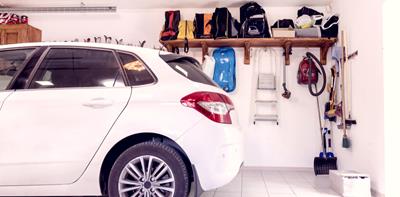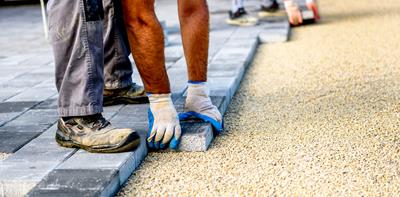
A holiday is a chance to really get away from it all.
To switch off from the day-to-day and forget about what’s happening at home. One thing you certainly don’t want to be worrying about is whether or not your home and belongings are secure while you’re away.
So how can you improve your home security? And better still, how can you do it without needing to splash out on the pricier solutions, like home security cameras?
Here are some small things you can do to protect your home when you’re on holiday. A lot of it is just about getting into good habits.
Use smart lighting
There are several types of smart home devices that can help you improve your home security. Among the cheaper options are smart lightbulbs. They tend to start at around £10 - so definitely more expensive than a standard bulb - but it’s really handy to be able to control them remotely, with your smartphone, and put them on a timer to give the impression someone is at home.
Old-fashioned light timer switches do a similar job. But make sure you don’t plug them in where they can be seen from outside.
Lock up tools and ladders
Often burglars don’t carry tools with them to break into a home, as possession of burglary tools is a criminal charge in itself[1]. So they may be on the lookout for something they could use to help them break in: if you leave tools around for them then you could be making their job easier and your home more of a potential target.
So, avoid leaving tools or ladders out on view, especially when you’re heading away for any length of time.
Ask for some neighbourly help
You want to create the illusion that someone is at home, as normal. So, see if you can enrol the help of a friend or trusted neighbour to help you do just that.
They could put your bins out for collection (and take them back in again) or park their car on your driveway, so it seems as though someone is in the house. If you feel comfortable doing so, you could give your friend or neighbour a spare key so they can pick up your post (a pile of post on your doormat is a giveaway that no one is home) and open and close the curtains.
Careful how much you brag on social media!
One of the best bits about going on holiday is being able to tell everyone about it. Form many of us, that means posting lots of pictures on social media, showing you lounging in the sun, or looking adventurous in some far-flung destination.
But if you’re keen on posting holiday snaps on social media, try and wait until you return home. Otherwise, there’s a risk thieves could use this information to identify empty properties.
Don’t forget to lock doors and windows
Shutting and locking doors and windows may seem blindingly obvious. But have you ever started driving away from home, only to be gripped by a growing sense of doubt as to whether you locked the front door or not? Or left a window open? It’s easily done, so make it a part of your routine to go round and double-check that all windows and doors are securely locked. If you're heading away, don’t forget to lock any gates, sheds or garages too.
Avoid mail and parcels piling up
If you’re a regular online shopper, then avoid ordering something that could get delivered to your home while you’re away and left for days or weeks on your doorstep. This is a clear indicator that no one is home.
Consider paying for Royal Mail’s Keepsafe service. They will hold onto any mail and deliver it to you once you’re home from your holidays.
Video doorbells
This is perhaps one of the more expensive options, but there are now some available for approximately £25. Also known as smart doorbells, video doorbells tend to be Wi-Fi-enabled, and come with a camera (frequently HD), speaker and microphone. Other features can include infrared LEDs, so you can get a better picture in the dark, and motion detection. See our article – Should I get a video doorbell?.
Check your home insurance
While prevention is always better than cure (or claim), it is also a good idea to check you have the right home and contents insurance cover and that it will remain valid while you’re away on your holidays.
If you’re lucky enough to be going on a particularly long break and you’re leaving your home empty, then check your insurance policy to ensure that you’ll be covered during this time. Most home insurance providers will want you to tell them if your home is unoccupied for 30 days or more (sometimes longer)[2], so it’s worth checking.
Getting your insurance in order is one more step you can take to give you a little more peace of mind and enjoy your holiday.
To find out more about how to protect your home visit Solved.
[1] https://www.caldersecurity.co.uk/could-your-own-tools-be-used-to-burgle-you/
[2] https://www.abi.org.uk/globalassets/sitecore/files/documents/publications/public/migrated/home/common-questions-about-home-insurance.pdf


